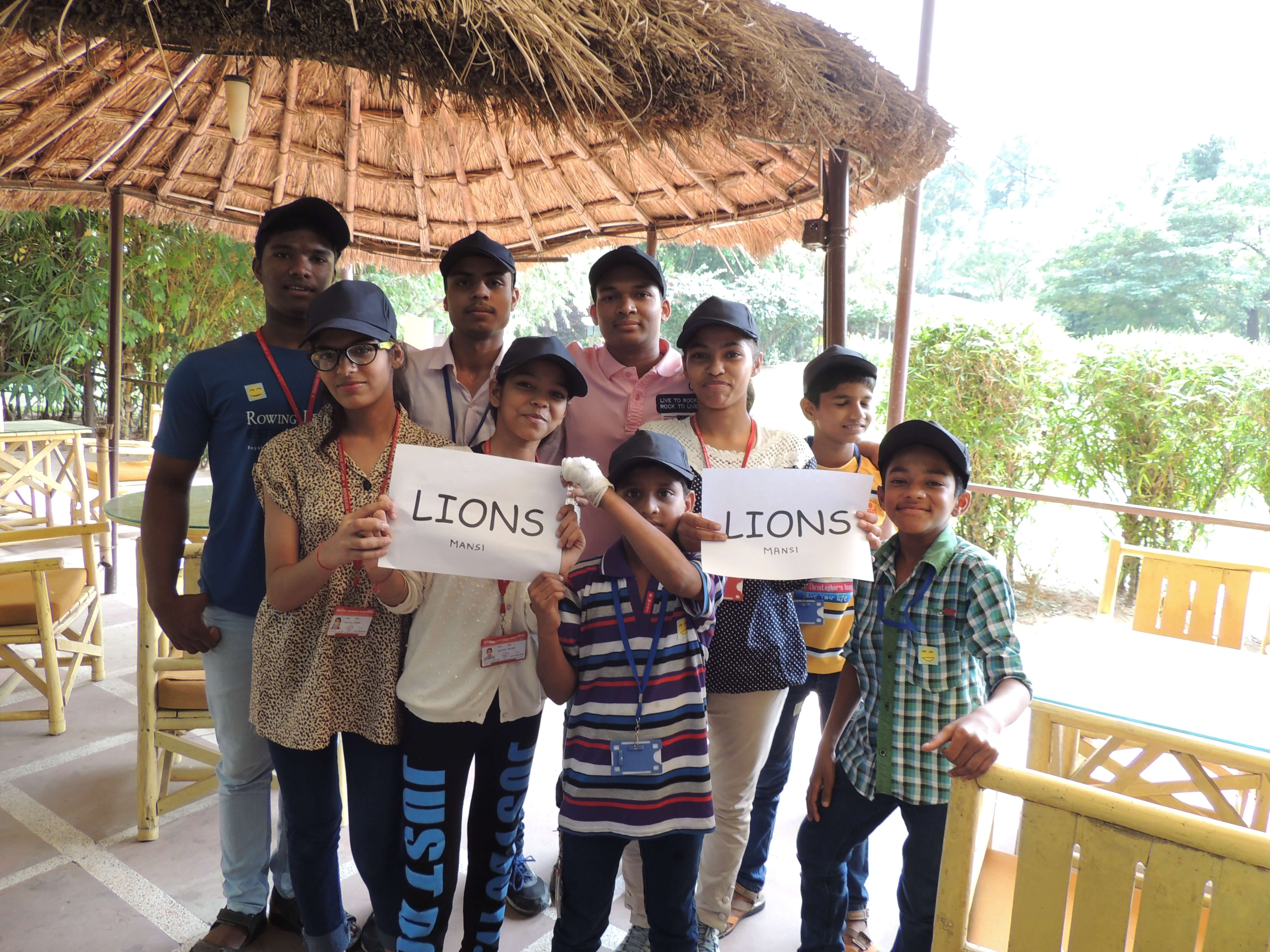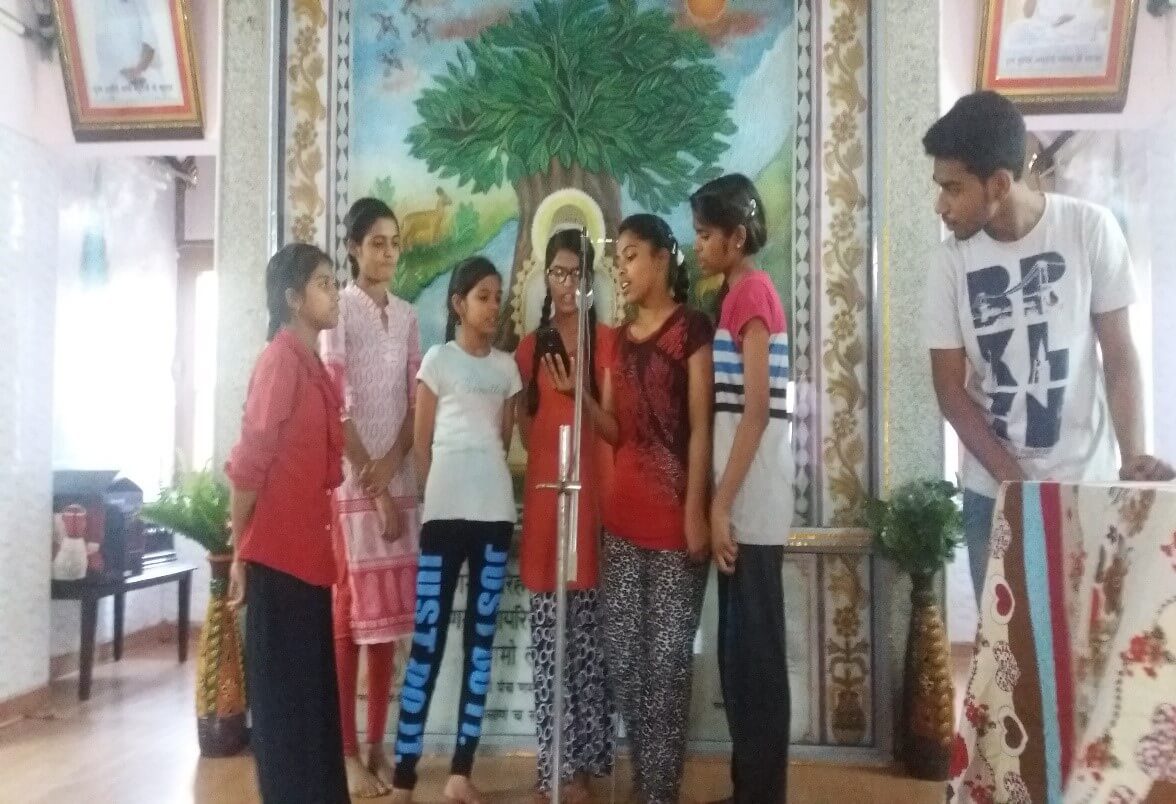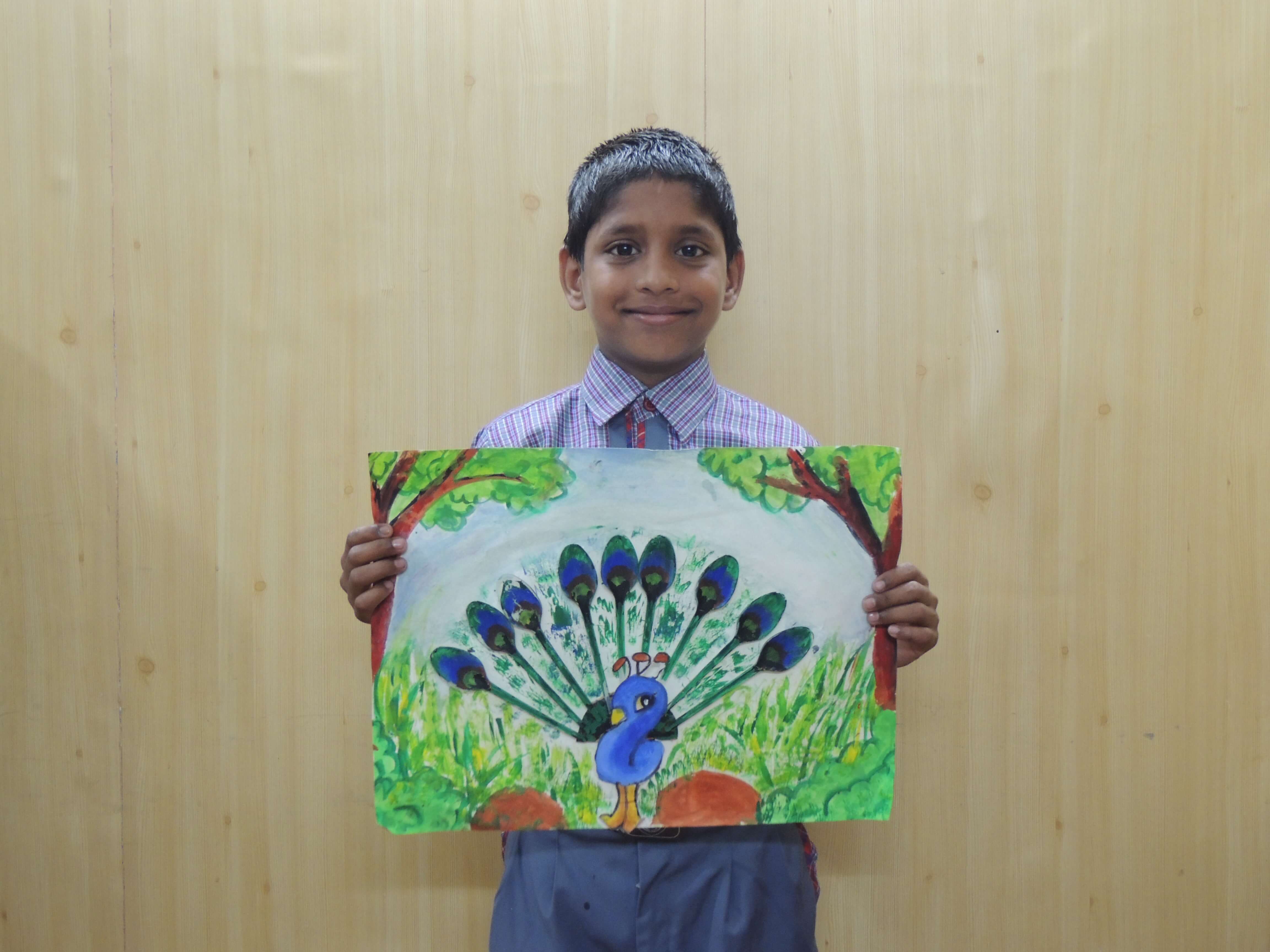Few words can paint a harsher picture in the mind’s eye than orphanage. And before she visited New Delhi's Manav Mandir Ashram for the first time, child psychologist Ritu Nagar admits that she, too, was wary of that word’s gloomy associations. Thankfully, these were very quickly swept away.
“When I came here I saw the children and young adults were so full of life. Obviously, it’s never going to be the same as when you have parents or either parent, but once I met the children I was very at ease. Personally I don’t like to use the word 'orphanage.'”
Indeed, Manav Mandir translates as “human temple”, which is much more apt. The ashram, a home for destitute children (with 36 children and young adults currently residing there), has been guided by the principles embedded in the name for 25 years. However, budgetary constraints meant that, when 1E first got involved – fifteen years ago, via CEO Sumi Karayi – there was only one educator at the institution: a yoga teacher.
Now, all the children attend the local, English-speaking public school (in India public schools are unaffiliated with the government) – an education sponsored by 1E. More recently, 1E brought Ritu into the ashram, to ensure the residents had emotional and psychological support, too.
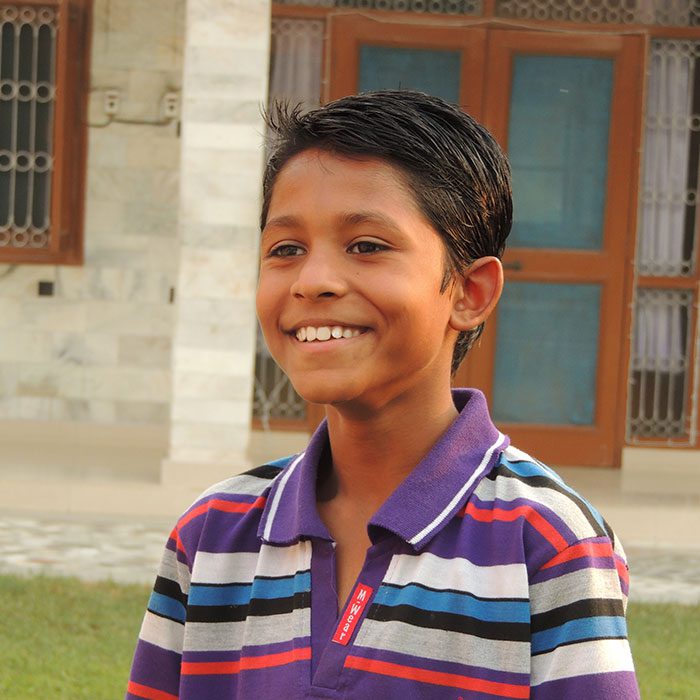
Meet the Manav Mandir Ashram Children. Vivek is 8 years old and is studying in class 4. He is very hardworking and wants to become a Doctor.
“I’ve been here for the past six months,” Ritu explains. “I feel like they are family and I really hope they feel the same. The children and young adults are very inspiring. They come from different backgrounds, with different needs, desires and ambitions. All of them, though, regardless of background, want to achieve something, and to give something back to society.”
Ritu is a qualified child psychologist, and a trained counselling psychologist. “I started counselling adults with an NGO and by the end of it realized we were always tracing the conflicts in people’s lives back to their childhood. And that made me feel I should maybe focus on child counselling and the idea that, by making a difference in the formative years I could make them more equipped to handle later life.”
Key to making that positive impact is maintaining a holistic approach to each and every child, a distinct approach to the way other, government-funded ashrams are structured and run.
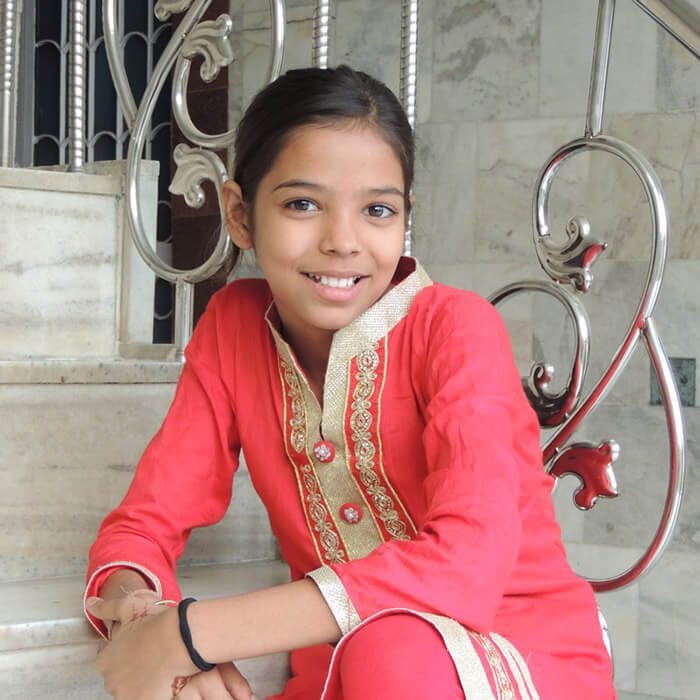
Meet the Manav Mandir Ashram Children. Diya is 11 years old and has been living in the ashram for one year. She is very creative and excels at craft work and dancing.
“The Indian government believes in quantity, not quality. The government would be OK with having 200 children here. The focus is not on empowerment. At the ashram, the philosophy is: don’t sympathize with these children, empathize with them, so you empower them and make them independent. That is very important.”
This holistic, committed approach is already bearing impressive fruit. For example, young adult ashram resident Sushant recently graduated from the University of Delhi with a History degree (he has enrolled for Post Graduation in History and is currently preparing for the premier administrative civil service exam). Another, Gagan, is in his final year of a B. Tech in Computer Science at the Greater Noida Institute of Technology.

Meet the Manav Mandir Ashram Children. Rishi is 15 years old and is studying in class 9. He wants to be a software engineer. His role model is Bill Gates.
Meanwhile, Ritu helps ensure that the emotional foundations for such outstanding success are firmly in place. Although it’s vital not to allow these children’s backgrounds to define them, she is keenly aware of the specific challenges she has to address in her capacity as their psychologist.
“With other children at schools I worked at, the children have a home to go back to with a mother or father or both. The life here is totally different. I have a three-and-a-half-year-old child who can be very demanding at times in terms of what he wants to eat and where he wants to go on weekends. But with these children I find that missing. They might want something but they won’t demand it.”
Then there's the ongoing, outward task of working on the world’s preconceptions.
“I would just say that, for me as psychologist, or for anyone visiting the ashram, you need to see the child in totality. Apart from being a child of the ashram, he or she is also an individual person, with their own strengths and weaknesses. I want everyone to know how talented these kids are. Everyone at 1E – the whole world – needs to know that. These children shouldn’t be pitied, we should see their creativity and applaud it.”
You can meet all of the children and young adults at Manav Mandir here. And here are some more photos — detailing a few of the kids' many extra-curricular activities and achievements:
